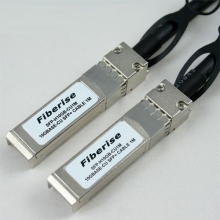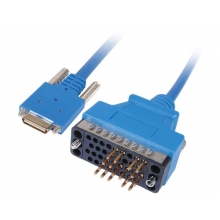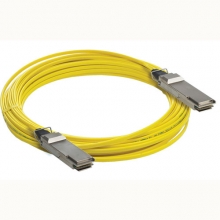- Optical Transceivers
- SFP+ Transceivers
- XENPAK Transceivers
- XFP Transceivers
- X2 Transceivers
- SFP Transceivers
- Compatible SFP
- 3Com SFP
- Alcatel-Lucent SFP
- Allied Telesis SFP
- Avaya SFP
- Brocade SFP
- Cisco SFP
- D-Link SFP
- Dell SFP
- Enterasys SFP
- Extreme SFP
- Force10 SFP
- Foundry SFP
- H3C SFP
- HP SFP
- Huawei SFP
- Intel SFP
- Juniper SFP
- Linksys SFP
- Marconi SFP
- McAfee SFP
- Netgear SFP
- Nortel SFP
- Planet SFP
- Q-logic SFP
- Redback SFP
- SMC SFP
- SUN SFP
- TRENDnet SFP
- ZYXEL SFP
- Other SFP
- FE SFP
- GE SFP
- OC3 SFP
- OC12 SFP
- OC48 SFP
- Copper SFP
- CWDM SFP
- DWDM SFP
- BIDI SFP
- Fiber Channel SFP
- Multi-Rate SFP
- SGMII SFP
- Compatible SFP
- GBIC Transceivers
- Passive Components
- Networking
- Cables
- Equipments
- Tools
- Special Offers


16% US homes can now get fiber, but deployments slowing
Eighteen million US homes can—right now!—order up a fiber optic line that runs all the way to their door. That's 16 percent of the population, and this buildout has happened almost totally in the last seven years.
It's good news for fiber, which has been on a growth rate that exceeds anything ever achieved by copper telephone wiring and coaxial cable wiring in their first years. According to a new study of fiber-to-the-home connections, "the highest early annual growth rate for copper was 76 percent and 125 percent for coax" within its first decade, but fiber-to-the-home has already hit 250 percent year-over-year growth rates.
There are caveats. First, the huge majority of these lines are part of Verizon's FiOS buildout—and that buildout has now reached the end of its first stage. Those within reach of a FiOS connection can still order one and have it installed, but the company has no plans to pass any more homes in the near future. And no other major company looks ready to do fiber-to-the-home at that scale.
Second, less than a third of those homes that can order a fiber connection have actually done so. Verizon's take rate has been decent but not earth-shattering; on the other hand, the small non-Verizon deployments have done well, generating take-up rates of 52 percent.
There are more of these small projects than one might expect; according to the report, "there is actually a very long tail" of 750 other fiber-to-the-home providers.
Taking fiber optic fight to Raleigh
A Salisbury delegation traveled to Raleigh this past week, meeting with the Revenue Laws Committee to discuss a bill that would hamper cities trying to provide fiber optic cable for broadband Internet access.
The bill, which is supported by cable and broadband industries, would prohibit cities from cross-subsidizing communications with other governmental funds.
In 2009, the Public Utilities Committee, chaired by Rep. Lorene Coates, D-Rowan, voted to have a committee look at the bill, which is called House Bill 1252.
The N.C. League of Municipalities opposes the bill, which has since been studied by various committees.
Salisbury Mayor Susan Kluttz, City Manager David Treme, Assistant to the City Manager Doug Paris, Broadband Services Director Mike Crowell, RowanWorks Director Robert Van Geons and Salisbury business owner Brad Walser attended the meeting Wednesday. They spoke for 25 minutes in opposition of the bill.
Walser is owner of Walser Technology Group on South Main Street.
"Brad was able to offer a different perspective to this committee," Kluttz said. "His business very much depends on this type of technology."
Walser called the experience "eye opening."
"I'm a firm believe that fiber optics will open the door to innovation and current high bandwidth applications, such as telemedicine, remote training in education, hoteling and telecommuting," Walser said. "It opened my eyes to how hard the city is having to fight to ensure they can install this fiber network."
Walser said he was unaware that the planned network wasn't a done deal.
"I always thought that we had approval, and it was moving forward," he said. "I understand why the city is fighting to make sure no bills are passed, and also fighting on behalf of other N.C. municipalities to make sure they can also have the right to put in the same type of fiber infrastructure," he said.
Walser said he understands why the private sector and large telecommunication companies do not want municipalities installing fiber optic networks.
"Fiber optic technology is far superior to the other technology currently used by these telecommunication companies," Walser said. "It (fiber) helps my business because our business model relies on affordable, reliable bandwidth.
"Certain areas within the city limits cannot receive reliable bandwidth. We host websites, e-mails, off-site data storage, and for them to get that data to us, they need a good connection to the Internet."
Walser said the city likely approached him about making the trip to Raleigh because he sent Kluttz and the council a letter in favor of the network when it was first discussed.
"They knew I was an advocate for the project and am a local, small business owner in the downtown footprint," he said. "They know we are a viable business, and have been doing business in Rowan County for around seven years."
Van Geons said RowanWorks wanted to get involved because of fiber's excellent reputation, and the draw it could have to businesses.
"From an economic development perspective, this type of broadband asset is an important addition to our economic development story," he said. "Ensuring our citizens are able to compete in the global marketplace is a real importance to us at RowanWorks."
Van Geons said he is aware of the different viewpoints on municipalities having their own broadband services. He hopes legislators will look at the big picture.
"I think there's a lot more discussion to be had about what access to this level of data could mean to N.C. as a whole, and smaller cities and towns across the state," he said. "For me, it's a story of innovation in our county. It's another thing we can sell on why this community is special and different, and a place of business a business and company should consider."
Paris and Kluttz asserted their opposition to the bill.
"For three years the General Assembly has consistently determined that House Bill 1252 is a bad bill," Paris said. "The committee took the time to listen to us on the issue and realized how bad of a bill this would be, not only for our community but for other communities across N.C."
Kluttz said Sen. David Hoyle planned to introduce legislation to further study the bill and possibly present a moratorium.
"He (Hoyle) said that whatever the outcome was, it would not impact the cities who are already implementing this," she said. "He specifically named Salisbury as one of the cities.
"I did have a personal conversation with him afterwards, and he did say the same thing to me. He was not interested in doing anything to hurt our efforts."
Although Salisbury and Wilson will be safe if the bill passes, Kluttz and Van Geons, worry about its effects on other municipalities.
"I feel like anyone who studies this is going to realize it is not a good bill, and, for economic development, our cities all need to have the opportunity to do this," Kluttz said. "Even if Salisbury is left out, I'm concerned for the others. Not only will it hurt the cities, it will hurt the state."
Kluttz said that although Hoyle supported leaving Salisbury and Wilson out of the bill, he was against any city getting into the broadband business.
Hoyle was unavailable for comment, as was Sen. Fletcher Hartsell, both members of the Revenue Laws Committee.
Kluttz said others spoke in opposition of the bill, including someone from Chattanooga, Tenn., where fiber has been implemented.
"They spoke of all the advantages of it," Kluttz said. "Volkswagen decided to locate there because of what they have done with broadband."
Vance Holloway, deputy state treasurer, spoke on behalf of the Local Government Commission against the bill.
"He spoke very confidently about Salisbury and the fact that we and Wilson, and other cities, have (pursued fiber) for economic development, not to be in the cable business," Kluttz said. "He felt very confident in what he had heard from us that we would be successful."
Kluttz said Kelli Kukura, director of government affairs with the N.C. League of Municipalities, also spoke in favor of broadband access.



















































